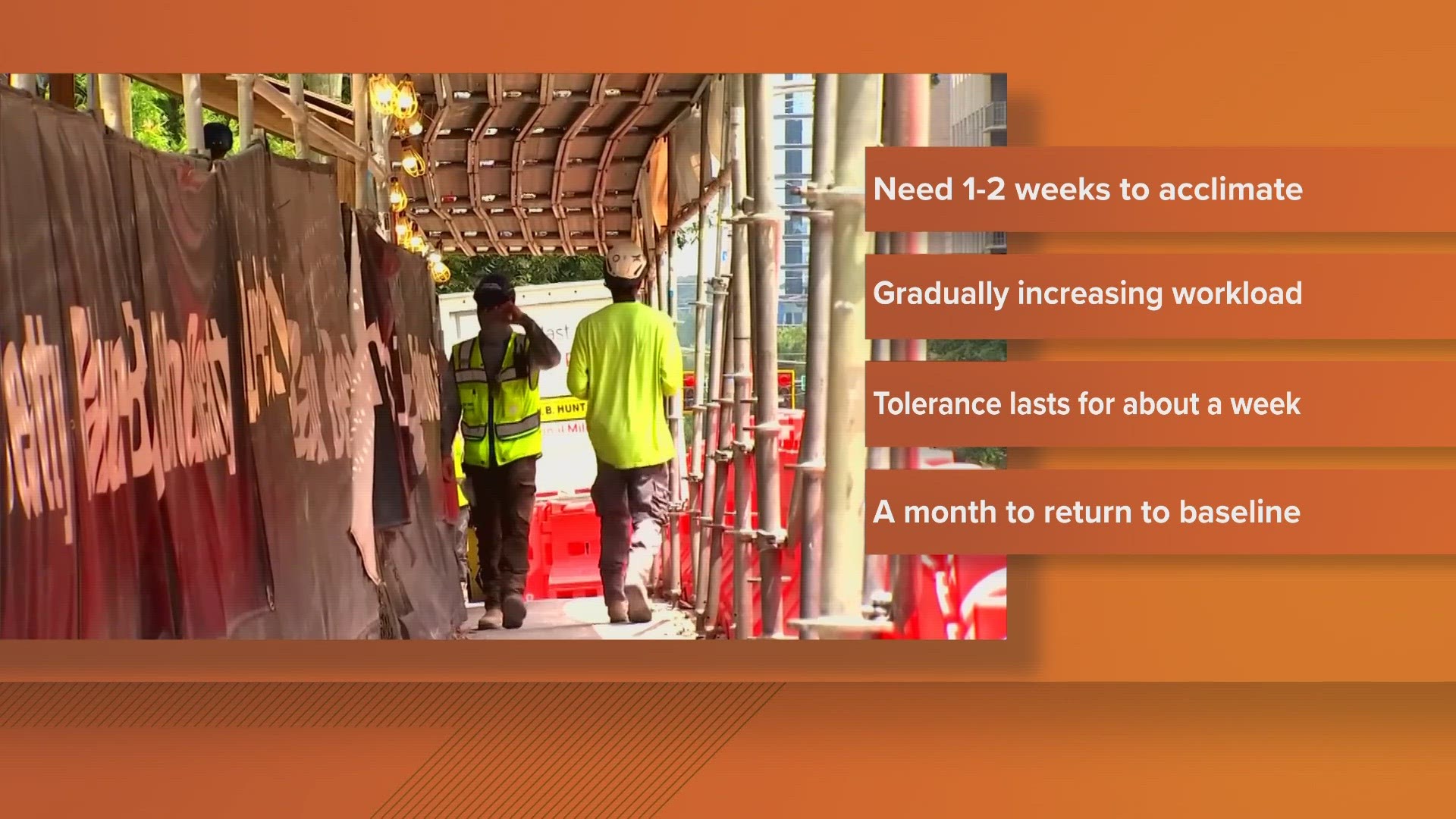WASHINGTON — Washington, D.C. is experiencing its hottest days of 2023. When the heat cranks up like this, we all look for little ways to make the days more bearable, but that is especially true for people who work or exercise outside.
A lot of people are asking Google if they can build up a tolerance to the higher temps.
QUESTION
Does acclimatization help reduce heat stress?
SOURCES
ANSWER
Yes, you can gradually give your body a higher tolerance for heat.
WHAT WE FOUND
All our sources agree that slowly getting used to exerting yourself in the heat helps your body, and could prove vital for people who work outdoors.
The Gatorade Sports Science Institute defines heat acclimatization as a natural/outdoor gradual introduction to hot conditions. Similarly, heat acclimation gradually introduces the body to heat through simulated/indoor conditions.
According to the Occupational Safety and Health Administration (OSHA), half of all heat-related workplace deaths occur during the worker’s first day on the job, and 70% of heat-related injuries happen in the worker's first week.
Each of our sources say people should take one to two weeks to get your body used to the heat. They suggest starting at a 50% exertion level for one to two hours a day and gradually increasing the workload.
The Korey Stringer Institute, founded at the University of Connecticut in response to the heat-related death of NFL player Korey Stringer, says acclimatization reduces a person's heart rate, internal body temperature responses, skin temperature responses, sweat electrolyte concentrations, and perception of exertion. It also increases blood flow, sweat onset, and sweat rate. All those things make it easier to tolerate working or exercising in the heat and can lead to improved performance.
The Centers for Disease Control and Prevention (CDC) says the effects of acclimatization last for a few weeks after heat exposure ends. It says tolerance will remain near peak levels for a week after the last heat exposure and takes approximately month before returning to baseline levels.
The CDC also warns of the danger of skipping acclimatization. It says that pushing to the point of heat exhaustion can make a person's heat tolerance weaker, not stronger.

